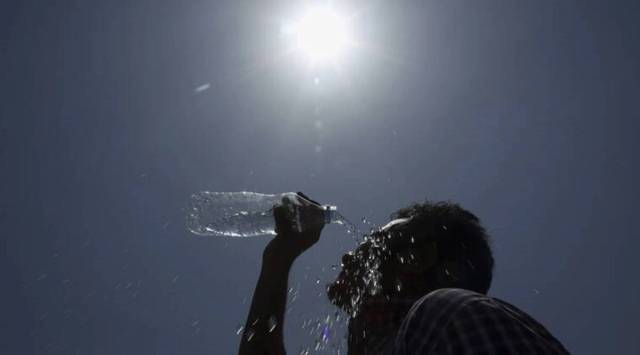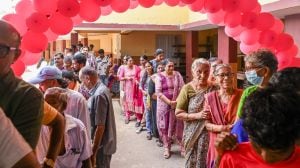Click here to join Express Pune WhatsApp channel and get a curated list of our stories
Temperature above normal in February, experts flag urgent need for action plan
Prof Dileep Mavalankar, Director, the Indian Institute of Public Health, Gandhinagar said the top officials from the government are needed to monitor and participate in heat wave action plans.
 The daily reporting of heat stroke cases will begin from March 1-July 31 and every death will be investigated, officials said.
The daily reporting of heat stroke cases will begin from March 1-July 31 and every death will be investigated, officials said. As most of the states have been witnessing above-normal temperatures in February itself, experts have flagged a need to chalk out an action plan over heat waves at the earliest and implement it to prevent any adversities.
“Don’t wait for March to begin… start working on heat action plans… train people, conduct a vulnerability assessment and ensure livelihoods are not impacted,” Dr Mahaveer Golechha, a nodal officer at Centre of Excellence on Heat Health of Union Ministry of Health and Family Welfare told The Indian Express. Dr Golechha has also given a presentation on heat wave reduction at the national workshop held on February 13 and 14 in Mumbai.
“Heat health officials need to be appointed in each district and more collaboration between the IMD and local administration is needed,” Dr Golechha advised. Last year, the country reported one of the hottest summer seasons. Maharashtra reported at least 25 suspected heat stroke deaths. According to a recent Lancet report, India’s vulnerability to extreme heat increased more than 15 per cent from 1990 to 2019 and the five warmest years ever recorded in India have all been in the last decade.
Dr Golechha also raised the need of having better data while dealing with heat waves. “India’s data is unreliable when it comes to recording and analysing total daily or weekly deaths or causes of death in any city or district. This makes accurately estimating the total number of deaths due to heat waves impossible,” he said. Even big cities like Delhi, Mumbai, Kolkata or Chennai are not publicly reporting deaths. The widely reported cases are of heat stroke with direct exposure to heat or sun. Non-exertional heat stroke, which is caused by hot environments or weather accounts for 90 per cent of deaths and those from indoors or less visible heat sources are minutely reported, the Health ministry official added.
Prof Dileep Mavalankar, Director, the Indian Institute of Public Health, Gandhinagar said the top officials from the government are needed to monitor and participate in heat wave action plans. “There is a need to step up heat surveillance and monitoring of casualties. A way to do this is monitoring the Dial 108 ambulance calls for heat-related assistance,” Dr Mavalankar opined. Meanwhile, when contacted, Maharashtra health officials said they had already alerted districts on stepping up measures on heat waves.
The daily reporting of heat stroke cases will begin from March 1-July 31 and every death will be investigated, officials said.
Click here to join Express Pune WhatsApp channel and get a curated list of our stories








